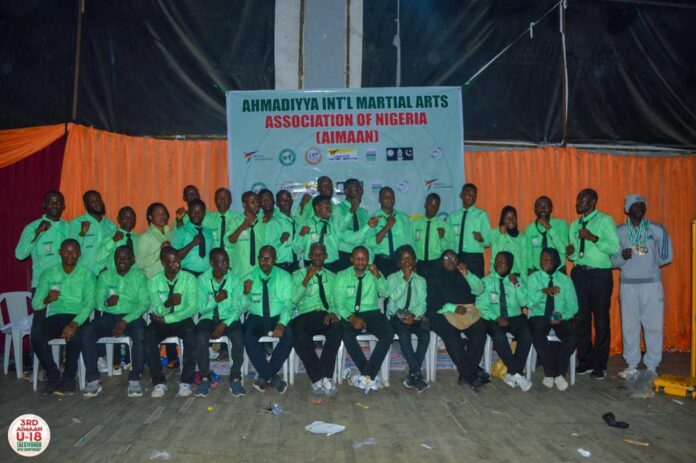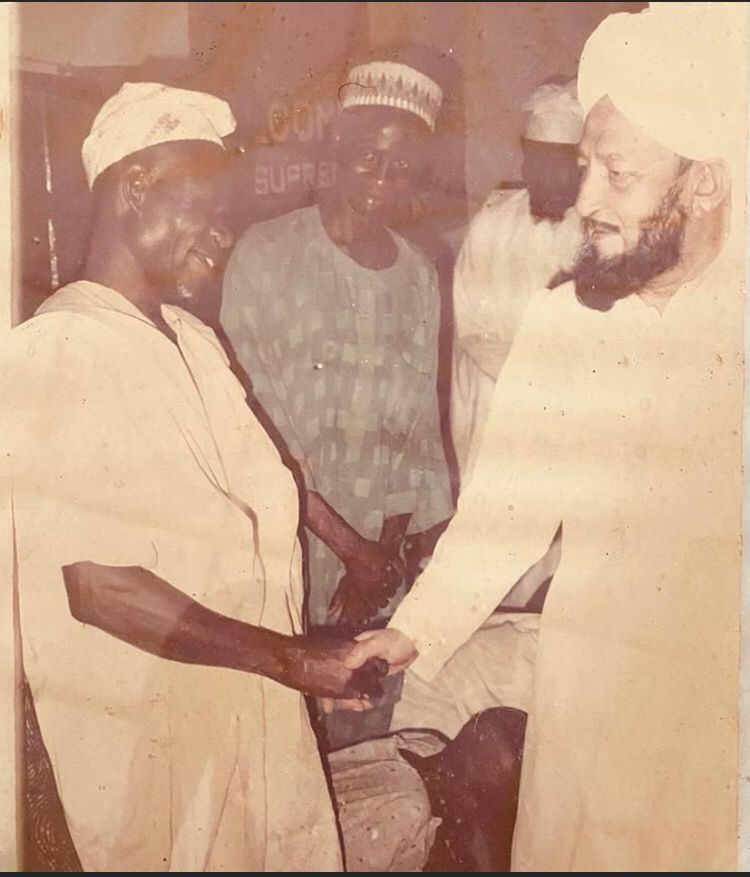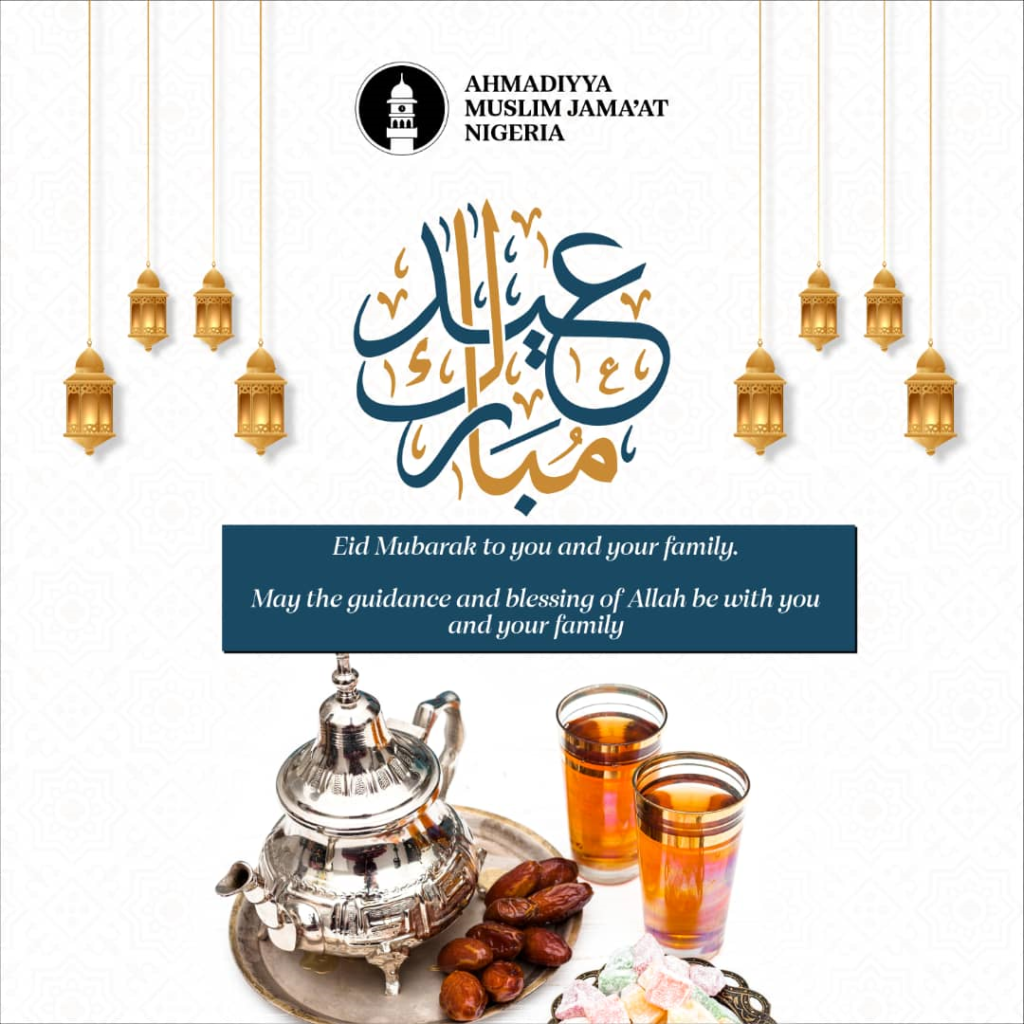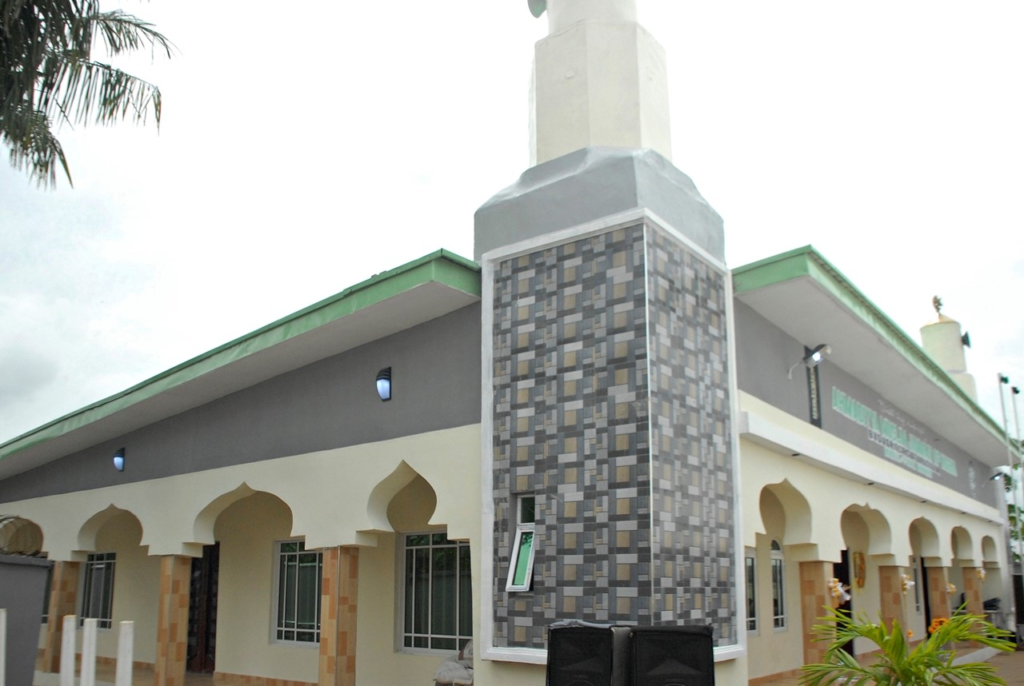AIMAAN Holds U-18 Taekwondo Open Championship

AHMADIYYA INTERNATIONAL MARTIAL ARTS ASSOCIATION OF NIGERIA (AIMAAN) IN CONJUNCTION WITH LAGOS STATE TAEKWONDO ASSOCIATION HOSTS THE 3RD AIMAAN UNDER -18 TAEKWONDO OPEN CHAMPIONSHIP (EKO 2022). The Ahmadiyya International Martial Arts of Nigeria (AIMAAN) U-18 3rd Taekwondo Open Championship was held on the 1st of October 2022, at Indoor Hall, Teslim Balogun Stadium, Surulere, Lagos State. The One-day championship featured numerous athletes from different states, notable people from different Taekwondo Associations in the country and several Taekwondo clubs. The first U-18 AIMAAN Open Championship was held in 2017 at Ojokoro, Lagos state. The second edition was held in 2019 at Liberty Stadium, Ibadan, Oyo State with a total number of 96 athletes from 3 states and 7 clubs, and 10 officials. The third edition hosted a total number of 260 athletes from 6 states and 19 clubs with quality officiating by 45 Taekwondo officials. The championship could not hold in 2020 and 2021 due to the Global pandemic crises (COVID -19) that ravaged the world. The event which was organized by AIMAAN under the coordination of Majlis Khuddam-ul Ahmadiyya Nigeria (MKAN) was done to give a sense of self-esteem, knowledge of self-defense, heightened mental and physical well-being of the athletes. Most importantly, AIMAAN U-18 Open Championship featured athletes from different clubs and schools in Nigeria, numerous national and regional academies and martial arts organizations including Lagos State Taekwondo Association, Nigeria Taekwondo Federation (NTF), Nigeria Taekwondo Black Belt College (NTBBC), Ahmadiyya Muslim Jama’at, Majlis Khuddam ul Ahmadiyya, Nigeria (MKAN), Majlis Ansarullah of Nigeria (MAAN). All athletes arrived at the stadium at exactly 6:00am, just like any other Taekwondo competitions, the athletes were weighed, and the competition started at exactly 8:00am. The dignitaries at the event were Amir Ahmadiyya Muslim Jama’at Nigeria Alh. (Barr) Alatoye Folorunsho Abdul Azeez, Sadr MKA Nigeria Mr. Abdur Roqib Akinyemi, Lagos State Taekwondo Association, Chairman (Master Jimmy Ogunnowo), Lagos State Taekwondo Coach (Master Peace Ogunnowo), NTBBC Vice President GM Abdul Muhmeen (Big Abdul), NTF Vice President GM Tayo Popoola, GM Rafiu Ibrahim (King) among others. 260 athletes from 8 states (Lagos, Ogun, Oyo, Kebbi, Ondo, Kwara, Osun and the FCT) participated in the Championship with over 200 spectators within and outside Lagos state came to grace the AIMAAN U-18 3rd Open Championship. Winners of competitions in different categories were given medals and certificates. PHOTO NEWS
REMEMBRANCE ( ALHAJI ISA ADEITE OLANREWAJU OLAYINKA 1930-2022)

Innalillahi Wainna ilayhi rojiun. We remember our father, grandfather, and great-grandfather, Alhaji (Prince) Isa Adeite Olanrewaju Olayinka today as always. It is exactly 20 years today (29th October 2002) that you left this world and passed on to glory. (1930 – 2022) A pioneer member of Ahmadiyya Muslim Jama’at of Nigeria, Mushin Branch & Palmgrove zone. A Builder of high repute, A Philanthropist, A Family Pivotal & A great Achiever. Alhaja Sabitiu Olaide Olayinka – WIFE CHILDREN Mrs. Sikirat Folayemisi Akinsanya – France Mr. Abdul Yakeen Oladele Olayinka – Lagos Mainland Circuit President Mr. Abdul Fatah Owolabi Olayinka – Odogbolu Jama’at President Mr. Tajudeen Adebukonla Olayinka – Idimu Jama’at Umur Amma Officer Mrs. Nurullah Omobolanle Zubair – Lajna President Ajido Muqami, Badagry Circuit Mrs. Khadijat Gbeminiyi Ghazal – Agunfoye Jama’at Member Bro. Sulaiman Olanshile Olayinka – Deceased Mr. Hussein Taiwo Olayinka – France Mrs. Husseinat Kehinde Olayinka – United Kingdom. Sunre ooo Lanrewaju omo Lubu, Omooba Moloda Agada L’Odogbolu.
The Ahmadiyya Muslim Community holds UK Islamic Conference

The 2022 annual Islamic Conference (Jalsa Salana) of Ahmadiyya Muslim Association, UK, holds on 5th to 7th August in Islamabad, Alton, UK. Due to COVID-19 constraints, the event is not open to external guests across the world, except for selected leaders of the Ahmadiyya Community and those residents in the UK. The Amir (National Head), Ahmadiyya Muslim Jamaat of Nigeria, Barrister Alatoye Azeez Folorunso is among the special dignitaries attending the conference in London. However, members of the public are welcomed to join live proceedings of the programme which can be watched at various homes and Ahmadiyya mosques across the world via the Community’s satellite television channel, the Muslim Television Ahmadiyya, (MTA International) Also, Murhi International Television, MITV, and Gaskiya Cable TV will join other 20 television channels across Africa to broadcast the Islamic Conference live for three days. In Nigeria, the Ahmadiyya Headquarters’ Central Mosque at Ojokoro, Lagos, and others across the country will play hosts to members and guests for the three-day proceedings. According to the founder of the Ahmadiyya Muslim Community, Hazrat Mirza Ghulam Ahmad, the Promised Messiah (as), the primary purpose of the Islamic Convention, which commenced since 1891 in Qadian, India, but now spread across the world, is to enable every sincere individual to personally experience religious benefits, enhance their knowledge, promote mutual understanding and strengthen fraternal ties within the Islamic Community. He said the gathering is not an ordinary human assembly, but a phenomenon that is based purely on the Divine Help for the propagation of Islam, translating to an affirmative action the declaration contains in Quran chapter 4 verse 115 that, “There is no good in many of their conferences except the conferences of such as enjoin charity, or goodness, or the making of peace among men. And whoso does that, seeking the pleasure of Allah, We shall soon bestow on him a great reward.” The high points of the gathering are addresses to be delivered by the Supreme World Leader of the Ahmadiyya Muslim community, Hazrat Masr r Ahmad, khalifatul Masih, V, goodwill messages from world leaders, prominent scholars, and very important guests for three days, and the global acceptance of new members and renewal of commitment to Islam and e Ahmadiyya community – “the Global Bai’at”, a tradition noted in Islam – that will be performed by His Holiness on Sunday. Other soul-inspiring topical issues in Islam and the global progress report of the Ahmadiyya Muslim Community will also feature during the conference. The live streaming of the Conference proceedings can also be watched or followed on the social media platforms such as www.alislam.org, www.mta.tv/africa, www. Youtube.com/africa Facebook Twitter, and Instagram. You can listen to online radio proceedings in www.voiceofislam.org Qasim Akinreti Ph.D Head, Media Team, Ahmadiyya Muslim Jama’at of Nigeria
INSECURITY IN NIGERIA: THE ROLE OF MUSLIMS

By Raqib Akinyemi The primary duty of government is to ensure that security of lives of the citizens are protected and guaranteed under the law. The government is believed, required and expected to put a lot of energy therein to ensure the security of lives and property are guaranteed. With recent attacks in Nigeria, the terrorists have the intrepidity to threaten the sitting President and a Governor of attack. We see reports of a series of attacks on some communities and persons which leave us pondering where is the way out? At this critical time in our dear Nation, Nigeria, it is evident the only Being that can save us is God Almighty. Do not misunderstand me, that we as humans and government should not do the needful to restore peace to the land. However, with these current challenges, it is the time we should be more submissive to Allah the Almighty and pray to Him to save us from the insurgencies and save our country from the people who cause mischief and chaos. We should preach peace. Whichever society we live in, people should point at us and say these are those who are steadfast in their faith and are the special servants of Allah the Almighty; and who remember the duties of man to Allah the Almighty, are none other than the Muslims. That they are those who live in harmony and peace with their neighbours; and regardless of religion and despite differences of ideologies, can act with justice; and must be the source of establishing world peace. Currently, when the country is in turmoil, the responsibility is even greater. Everyone is only concerned with his own self and there is no one to look after others. It is required that everyone be more security conscious, ensure we are safe as individuals and as a group. As Muslims, it is important to remind ourselves that everything happens by the will and wisdom of Allah the Almighty. When faced with trials and adversities, our beloved Prophet Muhammad SAW prayed to Allah the Almighty through constant invocations with the language of love and servanthood. We can find many prophetic traditions that teach us what to pray and some guidelines on how to pray to protect ourselves, family members and loved ones. Some of these prayers are encouraged to be done routinely in the morning and afternoon, emphasizing the significance and benefits of such discipline. Accordingly, we have been advised by our religious leaders to strengthen our faith in these difficult times and to increase our prayers and supplications to Allah the Almighty, on top of taking preventive measures to help contain this situation, including being vigilant. The beautiful thing is that Allah the Almighty has promised to respond to our call upon Him. وَقالَ رَبُّكُمُ اُدعُونِي أَستَجِب لَكُم Your Lord has proclaimed, “Call upon Me, I will respond to you” (Surah Ghafir, 40:61) In situations like this, and others in general, Islam teaches us to stay in control by hanging on to the Mercy and Grace of Allah. I will mention a few narrations or supplications as taught by the noblest of mankind, Muhammad SAW, which, if we take them as customs, we will be saved from all evils. As humans, we must seek from God Almighty whatever we want; as believers, we must believe in Him and that He will answer us. Some of the Traditions of the Holy Prophet Muhammad SAW: Narrated Abu Hurairah: That the Messenger of Allah (ﷺ) said: “Whoever recites Ha Mim Al-Mu’min – up to – To Him is the return (40:1-3) and Ayat Al-Kursi when he reaches (gets up in) the morning, he will be protected by them until the evening. And whoever recites them when he reaches the evening, he will be protected by them until the morning.” Jami` at-Tirmidhi Vol. 5, Book 42, Hadith 2879 It is narrated from the Prophet Whosoever recites Surah Ad-Dukhan all of it, and the beginning of Ha Mim Al-Mu’min (Surah Ghafir) till the verse Ilayhil Maseer (40:3) and Aayat Al-Kursi (2:255) in the evening, he is protected till he rises in the morning, and whoever recites them in the morning he is protected until evening. (At-Targhib wat-Tarhib 390) Dua (supplication) for protection against every kind of harm بِسْمِ اللَّهِ الَّذِي لَا يَضُرُّ مَعَ اسْمِهِ شَيْءٌ فِي الْأَرْضِ وَلَا فِي السَّمَاءِ وَهُوَ السَّمِيعُ الْعَلِيمُ Bismillahil-lazi la yadhurru ma’asmiHi shai’un fil ardhi wa la fis-sama’i wa Huwas-Sami’ul ‘Aleem In the Name of Allah with Whose Name, there is protection against every kind of harm in the earth or in heaven, and He is All-Hearing and All-Knowing (Sunan Abi Daud) Dua for total protection اللَّهُمَّ احْفَظْنِي مِنْ بَينِ يَدَيَّ, وَمِنْ خَلْفِي, وَعَنْ يَمِينِي, وَعَنْ شِمَالِي وَمِنْ فَوْقِي, وَأَعُوذُ بِعَظَمَتِكَ أَن أُغْتَالَ مِنْ تَحْتِي Allahummah-fazni min baini yadaiya, wa min khalfi, wa ‘an yameeni, wa ‘an shimali wa min fauqi, wa a’uzu bi’azomatika an ughtala min tahti O Allah protect me from my front, behind me, from my right and my left, and from above me, and I seek refuge in Your Magnificence from being taken unaware from beneath me (Sunan Ibn Majah) Dua after Leaving the House Narrated by Anas bin Malik r.a, The Messenger of Allah s.a.w. said: من قالَ يَعني إذا خرجَ من بيتِهِ: بِسمِ اللَّهِ، توَكَّلتُ على اللَّهِ، لا حَولَ ولا قوَّةَ إلَّا باللَّهِ، يقالُ لَهُ: كُفيتَ، ووُقيتَ، وتنحَّى عنهُ الشَّيطانُ Bismillah, tawakkaltu ‘alAllah, wa la hawla wa la quwwata illa billah “Whoever says (upon leaving his house): “In the Name of Allah, I place my trust in Allah, there is no might or power except by Allah”,’it will be said to him: ‘You have been sufficed and protected, and the devil will go far away from him”. (Sunan At-Tirmizi) Seek For Forgiveness There are also times when we face trials during traveling. The best of remembrance (Zikr) is to ask for forgiveness (Istighfar) from Allah the Almighty for our sins or shortcomings. Abdullah bin Abbas r.a. narrates
Jubilations as LASU Approves AMSA Chapter on Campus

It has been a jubilation galore following the approval by the Lagos State University (LASU) of the registration of a Chapter of Ahmadi Muslim Students’ Association (AMSA) on the University campus on 20th July 2022. The letter of approval, signed and issued by Mr. Fashola T. O., the Senior Assistant Registrar, Students’ Affairs Division, at the instance of the Acting Dean, Students’ Affairs Division, officially notified the President of AMSA (LASU Chapter), Mr. Badmus Isa Taiwo, that “your request to register Ahmadi Muslim Students Association, Lagos State University Chapter has been APPROVED.” It further noted that “This approval is subject to the ratification by the University Senate on the recommendation of the Students’ Affairs Committee, and it is renewable at the end of every academic session.” In his reaction to the historic development, the Chapter’s President, a 400-level Islamic Studies student of the University, was quick to express his joyful emotions, stating that, “For over a decade, the past administrations of AMSA, LASU have tried to register the association on campus, but the University Authorities didn’t grant it.” “Recently, however, my immediate predecessor, in the person of Comrade Hafiz Ismail Abdul Qadri, called me and gave some pieces of advice about the AMSA LASU registration. We started the struggle again since last semester. I submitted our application for registration more than three times.” Narrating further, he said, “I was very happy when, while we’re preparing for our program (AMSA LASU FRESHER’S ORIENTATION) yesterday, I was called from Students’ Affairs Office that our approval letter is ready.” Expressing his gratitude, he said, “I give thanks to Almighty Allah, because He is the One that makes this struggle comes to reality.” “Also, I really appreciate some of our lecturers and brothers on campus. Dr Sa’eed Olurotimi Timehin, Mr. Bosun Jubril Akinde, Mr. Abdul Hakeem Akintobi, Dr Oyebo, Dr Edu, Mr. Popoola and Mr Balogun Ridwanullah (Saudibras) who are Ahmadi lecturers on campus. Also, Dr. Bello, who, although, is, actually, not an Ahmadi Muslim, but stood behind us during the registration struggle.” In the same vein, while reacting to this achievement, Hafiz Abdurrofeeq Alaka, a former National President of AMSA Nigeria (2017-2019) and First Class graduate of LASU, said, “Alhamdulillah. It is a thing of joy to live to witness this achievement that directly affects the lives of Ahmadi Students within the campus.” Speaking further, he recalled that, “Several attempts have been made previously and the mainstream body, i.e. Muslim Students Society of Nigeria (MSSN) has proven difficult to deal with. Despite our non-registered status in 2013, we managed to secure a hall within the campus for a program, bringing together AMSA members in Lagos State; but surprisingly, MSSN came and disrupted the whole program.” “In 2017, we made another effort to get registered but we were, however, told by the LASU Muslim community to go and get a letter of recognition from MSSN. This was just a plan to frustrate our plans knowing full well that that was impossible. At any rate, we’re happy that, finally, justice has been served and we felicitate with the entire members of AMSA Nigeria for this breakthrough, he added.” The purpose for establishing AMSA is “to build a membership base who shall serve as an agent of peace, equity and justice by imbibing in its members, beneficial knowledge and acute leadership skills necessary for the development of our society in the 21st century.” Other purpose of the association is “To develop members’ knowledge and intellect for objectivity on Islamic teachings and for active involvement in its propagation and practice,” It also aims “To develop interest in social and humanitarian services and to lay the foundation of and work towards universal brotherhood,” among others purposes.
Eid al-Adha Sermon Summary 10th July 2022: ‘Attaining the True Spirit of Sacrifice of Abraham (as)’

After reciting Tashahhud, Ta’awwuz and Surah al-Fatihah, His Holiness Hazrat Mirza Masroor Ahmad (aba) said: The Sacrifice of Abraham (as) & the Sign of God Almighty’s Promise By the grace of Allah we are celebrating the day of Eid al-Adha, that is the festival of sacrifice. During this celebration we commemorate the sacrifice of a father, mother and a son, which took place over a thousand years ago. It was the sacrifice of Abraham (as) who left his wife and child in a barren wilderness, solely because it was the instruction of God Almighty. The level of faith displayed by his wife when she came to know this was from His Lord was unwavering, as she was sure that He would take care of them. Indeed, Allah Almighty provided everything that they required, and this became the start of a new population. His Holiness (aba) said that every year now millions of people travel to that place which was once barren, but is now a sign of the promise of God Almighty. Furthermore, from the progeny came the greatest of all prophets, the Prophet Muhammad (sa) who was sent as a warner and bearer of glad tidings for the entire world. He showed the world the manner in which one ought to commemorate the great sacrifice of Abraham (as) and his family, and so Muslims all around the world display their love for God Almighty and sacrifice for his sake because of this. Uniting under the Ardent Devotee of the Holy Prophet (sa), the Promised Messiah (as) His Holiness (aba) then said that other than Islam there is no religion in the world, the followers of which are truly acting upon the teachings brought by their founder or prophet. There is no revealed book which remains in its pristine form, other than the Holy Qur’an. His Holiness (aba) said that even if many followers of Islam fail to act upon the true teachings of the Qur’an, Allah Almighty will always raise people who will follow it as is required. Thus in accordance with His promise, Allah Almighty sent the Ardent Devotee of the Holy Prophet (sa), the Promised Messiah (as) to complete the propagation of his religion. He came and challenged the entire world to bring forth any teachings which can compare to the Holy Qur’an, yet no one was able to do so successfully. His Holiness (aba) explained that the Promised Messiah (as) came to show the world once again the true teachings of Islam, and to save the people from their self-concocted customs and innovations which were leading them away from the true spirit of Islam. Yet, instead of showing gratitude to God Almighty for this immense blessing, it is regretful to see that the Muslim world became staunch in their opposition to this appointee of Allah. Rather than uniting under this leader, Muslims are fighting amongst themselves, issuing edicts against each other and looting one another. His Holiness (aba) said that this Islam that they are presenting is not the true Islam. True Islam is of peace, love and harmony. Celebrating True Eid by Spreading the Message of Peace & Accepting Promised Messiah (as) His Holiness (aba) said that Abraham (as) prayed to God that the land becomes a place of peace and security, hence, the Muslims should realise that if they associate themselves with this holy precinct, and wish for this promise to be fulfilled, then they must harbour love, peace and harmony in their hearts rather than fight amongst themselves. Rather than opposing the Promised Messiah (as) who appeared in accordance with the prophecies of the Holy Prophet (sa) and committing injustices against his community, the Muslim world must celebrate the true Eid by spreading the message of peace and by joining his community. If they do not do so, then they can celebrate thousands of Eids and perform as many pilgrimages as they like, their Eids and pilgrimages will be that of those who oppose the teachings of Allah Almighty. The Correct Way of Commemorating the Sacrifice His Holiness (aba) stated that one should ponder as to whether the sacrifices of the Muslims can even gain any acceptance by Allah if they continue to commit grave injustices and perpetrate such persecution. What’s more, in certain areas of Pakistan announcements have been made that no Ahmadi is allowed to perform any sacrifice during the three days of Eid, be it for any reason. His Holiness (aba) said that when circumstances reach such a point then Allah Almighty also manifests His punishment. Ahmadi Muslims are actually those who understand the true spirit of sacrifice, and have pledged to sacrifice their lives, wealth, time and honour. His Holiness (aba) also addressed the Ahmadis to remain patient and that one day their patience would bear fruit, God willing, just as the patience and sacrifices of Abraham (as), Hagar (as) and Ishmael (as) bore fruit. They never let go of prayer and patience, and so the greatest blessings were manifested in the person of the Holy Prophet (sa) and his companions, who were from the progeny of Ishmael (as). So even today, Allah Almighty will not abandon anyone who is patient and makes sacrifices, He will certainly come to their aid. It is therefore our duty to submit to Allah even more and to increase our level of righteousness. We must strive to attain that spirit of sacrifice, if we desire to receive the pleasure of Allah and face our opposition. His Holiness (aba) then said that the Promised Messiah (as) explained the manner in which one can reach this level of sacrifice when he stated that Allah Almighty has given examples for the commandments given to us. One is commanded to sacrifice oneself entirely, and the manifestation of that sacrifice is the animals we slaughter. Yet, it is not the blood nor the meat which reaches Allah, it is the righteousness in us. Hence, just as one slaughters an animal physically, they must be prepared to be
THE HEAD, AMIR, AHMADIYYA MUSLIM JAMAAT NIGERIA 2022 (EID-UL-ADHA ) FEAST OF SARCRIFICE.

On behalf of Ahmadiyya Muslim Jama’at of Nigeria, I felicitate with Muslims in Nigeria and across the world on the auspicious Eid-ul-Adha (Festival of Sacrifice) of this year 1443/2022. It is gratifying that Eid-ul-Adha serves as a reminder of that example of sacrifice set over 4,000 years ago. Despite so much time having elapsed, the believers have kept this memory alive and it has not diminished. Yet there will be those who celebrate this Eid merely as a festival; who sacrifice animals merely as an occasion of happiness. However, a true believer must remember the importance and the spirit of that sacrifice offered by the Great Patriarch, the Prophet Ibraheem (peace be on him). The spirit and essence of this sacrifice have been declared in chapter 22 verse 38 of the Holy Quran thus: “Their flesh reaches not Allah, nor does their blood, but it is your righteousness that reaches Him. Thus, has He subjected them to you that you may glorify Allah for His guiding you. And give glad tidings to those who do good.” In this light, as we go through this festive season, it is imperative that we reflect on the fact that the narrative of the sacrifice and righteousness of Prophet Ibraheem, the patience of Prophet Isma’eel, and the fortitude of his mother, Hagar reverberates the core ethos and virtues that Eid-ul-Adha annually enlivens in the consciousness of the faithful to emulate and demonstrate in our divine-human relationship and in all ramifications of our actions, reactions, interactions, and transactions. More importantly, for us in Nigeria, there is no doubt that we are currently passing through a critical time as a people and a nation. This is hallmarked by the gamut of challenges of political economy, endemic corruption, crippling educational and power sectors, and the heightening crisis of insecurity characterized by the dastardly acts of banditry, terrorism, and the incessant heinous cases of kidnapping for ransom and for ritual and the senseless killings and destructions by the so-called “unknown gunmen”. Above all, however, as we move closer to the Osun State governorship election and the ultimate 2023 general elections, the ongoing electioneering season is gradually witnessing a sharp surge of issues associated with elections in Nigeria, ranging from hate speech and fake news to bitter and dirty politics, to secessionist or separatist jingoism, divisive tribal or ethnic partisanship, the politicization of religious issues and endemic cases of vote-trading and other election malpractices. In the face of this critical situation, it becomes imperative for a people that yarns for peace and development to translate to affirmative action all the lessons of Eid-ul- Adha as demonstrated by the Prophet Ibraheem, particularly as Muslim and Christian reverence him as the Father of the faithful; incidentally, Nigeria is majorly made up of the two religious groups with 53.5% Muslim, 45.9% Christian and 6% others, according to the 2018 CIA Factbook estimate. In the spirit of Abrahamic sacrifice and for the sake of a greater and peaceful Nigeria, great sacrifice must be made towards organizing free, fair, credible and peaceful elections, as “Verily, Allah commands you to make over the trusts to those entitled to them, and that, when you judge between men, you judge with justice,” (Quran, 4:59). Selfishness and parochial interest must be sacrificed for the collective, national interest. More so, political participation, activism, leadership and governance must be underpinned by the spirit of sacrifice, righteousness, sincerity of purpose and selfless service to humanity and national development, cohesion, solidarity, peace and stability. Imperatively, Nigerian politicians and political leaders must sacrifice dirty and bitter politics on the alter of altruistic politics, selfish political godfatherism for patriotic statesmanship, political thuggery for sportsmanship, nepotism and favouritism for equitable distribution of the commonwealth, warfare for welfare, iniquity for equity and injustice for justice. As the worldwide Supreme Head of the Ahmadiyya Muslim Community noted in his 2021 Eid-ul-Adha Sermon, “We cannot regard these incidents as mere stories; rather these stories are a model for us. When every man strives to inculcate the example of Ibrahim, when every woman tries to inculcate the example of Hagar, when every youngster tries to inculcate the example of Isma’eel; only then will a true change come about……These all require sacrifices. No change can come about by merely listening to stories of sacrifice, rather they must be implemented. Every nation around the world will have to present sacrifices. Thus can a unity come about in the world.” May Allah the Almighty grant us the best of Eid-ul-Adha experiences with all the divine grace, peace, and happiness that accompanies it. Āmīn!
AHMADIYYA OPENS ULTRA-MODERN MOSQUE IN BADAGRY

Condemns Owo Massacre in Strong Terms It was a huge landmark and historic day on Sunday, 19th June 2022 as the National Head of Ahmadiyya Muslim Jama’at of Nigeria, Barr. Alatoye Folorunso AbdulAzeez commissioned an Ultra-Modern Central Mosque at Ajagamibo Avenue, Aradagun Badagry in Lagos State. The worship centre was built with state-of-the-art facilities, tiled both within and outside, embedded with good-looking minarets, and surrounded by attractive flowers in a serene and spacious environment. Named ‘Baitul-Fatah Mosque’, the place of worship can easily accommodate over 600 worshippers at once. The foundation of the Mosque was first laid in October 1980 by the then head of the Ahmadiyya Muslim Community in Nigeria, His Eminence Ajmal Shaheed Ahmad. The foundation stone was re-laid on Saturday 19th February 2022 by the Badagry Branch President of the Muslim Organization, Pa. M.B Okubena. Hence the mosque project was completed in a record four-month. The Mosque was built and donated by one of the blessed families of the Ahmadiyya Muslim Community – the Popoola family in honor of their late father Alhaj Abdul Fatah Atanda Popoola who was a staunch and devoted member till his demise in 1982. In his address, the National Head of the Muslim organization lauded the initiatives of the Popoola family, stressing the importance of Mosque building and its aftermath rewards in the hereafter. He added that all places of worship must be sacred centres void of evil acts. Alhaji Alatoye further admonished worshippers to always have pure and sincere minds when observing prayers in Mosques as this is pleased with Almighty God. “The rewards for building Mosques in honor of our late loved ones are in multitudes. It is a life-time reward. The initiative of the Popoola family is hereby commendable”. “We must worship in the Mosque with our hearts filled with love, kindness, and piety. Everything we do in the Mosque must be Godly. May Allah accepts our sincere prayers,” he prayed. Owo Massacre highly condemnable Alhaji Alatoye also used the opportunity to, once again, condemn in strong terms, the brutal attack on worshippers at St. Francis Catholic Church, Owo in Ondo State. He stated: “It is difficult to believe any group of individuals could have the audacity to attack a place of worship filled with human beings who were gathered to worship God, the Almighty. This is the peak of an affront against God and man that will never go unpunished. There is no absolutely no justification whatsoever for any group of people to engage themselves in such a callous and dastard act.” “Even in the face of a defensive response to an act of war, the Holy Quran expressly forbids believers from attacking places of worship, children, women, and priests.” The Amir further informed that the youths of the organization joined others in donating blood to the surviving victims of the barbaric attacks. He thus urged the police force to fish out all the perpetrators and their masterminds and made them to face the full wrath of the law for their devilish acts.
HUMANITY FIRST PARTNERS LAJNA IMAILLAH NIGERIA TO RESTORE EYE SIGHT AS IT JOINS GLOBAL CENTENARY ANNIVERSARY.

Humanity First Nigeria, with funding support from Humanity First Canada, joined the Women Servants of Allah in Lajnah Immaillah Nigeria to conduct thirty free cataract eye surgeries in Abeokuta. Humanity First International manages the global gift of sight campaign through the organization of eye surgery outreaches worldwide. The recent expedition was held at the State Hospital Abeokuta Ogun State on the 24th and 31st of May 2022. Six eyeglasses were also given to indigent patients whose eyesight disorder did not warrant surgical interventions. The selection process for the beneficiaries was conducted using Google forms data submission, screening, and selection of the best-suited candidates for surgery from 70 applications. The beneficiaries included 20 females(amongst which was a 12-year-old girl), and 10 Adult males ranging from ages 17 to 86. The free eye cataract operations was highly appreciated by the beneficiaries. It was part of activities commemorating the Centenary celebrations of Lajnah Immaillah worldwide. Gift of Sight Photo Gallery
EIDUL FITR MESSAGE BY THE HEAD OF AMJN

LET US DECIDE TO PERMANENTLY RETAIN THE PROGRESSIVE HUMAN VALUES TAUGHT BY RAMADHAN – TEMPORARY CHANGE IS INSUFFICIENT All praise and glorification belong to Allah through Whose providence, grace and blessings we have been able to begin and complete this year’s Ramadan fasting. May the peace and blessings of Allah be upon the Holy Prophet Muhammad and upon his family and companions and his true followers till the Day of Judgement. On behalf of the Ahmadiyya Muslim Jama’at of Nigeria, I am deeply delighted to felicitate with the Muslim Ummah in Nigeria and across the globe on this auspicious day of Eidul Fitr of the year 1443/2022. Lessons of Ramadan The just concluded Ramadan fasting has offered us the unique opportunity of engaging in moral reformation, spiritual rebirth and regeneration of our social values and ethos. Indeed, like a medical clinic, we have been discharged from the Ramadan clinic after a month-long admission for both therapeutic cleansing of our bodies and the treatment of our various moral and spiritual diseases and vices including hypocrisy, unrighteousness, corruption, dishonesty, fraud, selfishness, cruelty, lying and wickedness, among others are all temporarily cured. More importantly, now, having completed our annual Ramadan training, it is crucial for us to continue to engage in those various CORE VALUES of worship and virtues that had characterized our lives during Ramadan as we pass through the rest eleven months ahead and beyond. The Build up to the 2023 Elections. The month of May and June are very crucial to the democratic growth of Nigeria. The political parties are set to conduct their party primaries in readiness for the 2023 general elections, with the presidential election in February 2023. The Ahmadiyya Muslim community enjoin political participants to ensure a smooth and rancor free party primaries with the fear of Allah and absolute patriotism. It is expedient to appeal to all aspirants, delegates and citizens to ensure justice, equity and fairness in the choice of candidates for various elective positions in Nigeria. It is time to pray that Allah choose leaders for us as a result of the elections those whom He will support fully to enable us get out of the economic, security, civil and physical challenges. We should be hopeful that our dear country Nigeria will rise. We employ all to participate in the current voters’ registration exercise which will enable us to elect good political leaders. The Global challenge As the state of global affairs shows, our world is currently passing through a precarious, crises-laden phase shaped by the effect of the post-Covid-19 economic and political challenges that are being aggravated by the ongoing Russian-Ukrainian war the growing global effects and tensions of which are driving humanity to the brinks of a world war. Despite warnings by the World Head of the Ahmadiyya Muslim Community, Hazrat Masroor Ahmad, Khalifatul Masih the fifth, (May Allah Be His Helper) on the consequences of the Russian- Ukraine war, he has continued to pray for the peaceful resolution of the self-inflicted war. In his words”, I pray that the World leaders strive earnestly to safeguard and protect mankind both today and future, from the torment of warfare, bloodshed and destruction”. In the same vein, at the national level, while some levels of progress are being made in some sectors of our national life, there is no gainsaying that Nigeria has continued to be bedeviled by the crippling challenge of insecurity characterized by the pandemic of kidnapping for ransom and/or ritual killings and the spate of senseless and heinous bloodshed and destructions being perpetrated by the terrorists, bandits and the so-called “unknown gunmen.” More so, our country has continued to wallow in the whirlpool of intra and inter-religious distrust and unhealthy relations, bitter partisan politics, crises of political economy, poverty and unemployment and widespread economic, political and social vices, like corruption, nepotism, injustice, fraud and immorality, all of which have combined to sink the lives of many individuals and the nation into the abyss of deprivations and miseries. In light of all these, there is need for us to resolutely imbibe and practice continually all the virtues and learnings of Ramadan, like fear of Allah, selflessness, righteousness, honesty, truthfulness, simplicity, generosity, dutifulness, sympathy and sacrifice, among others, in order to positively turn things around. Expediently, we must entrench mutual cooperation for the promotion of common good and welfare, not warfare, and of inclusivity and social responsibility; rededicate to serve God sincerely and humanity selflessly and beneficially; and let reconciliation, loyalty to the nation, peaceful relations, justice, equity and mutual respect, tolerance and love for all and hatred for none be our guiding principles (Qur’an 5:3 & 9; 4:115; 49:10-14) as we move ahead to frontally tackle our common challenges with a view to realizing sustainable peace and development of ourselves, our country and the world. Once again, I heartily rejoice with everyone on this blessed, festive season and pray that Allah let the peace, blessings and happiness that characterize the Eidul Fitr be permanent in the life of every individual, the nation and our world at large. Āmīn. Ramadan Mubarak !!! Alatoye Folorunso Azeez Amir (National Head), Ahmadiyya Muslim Jama’at of Nigeria
